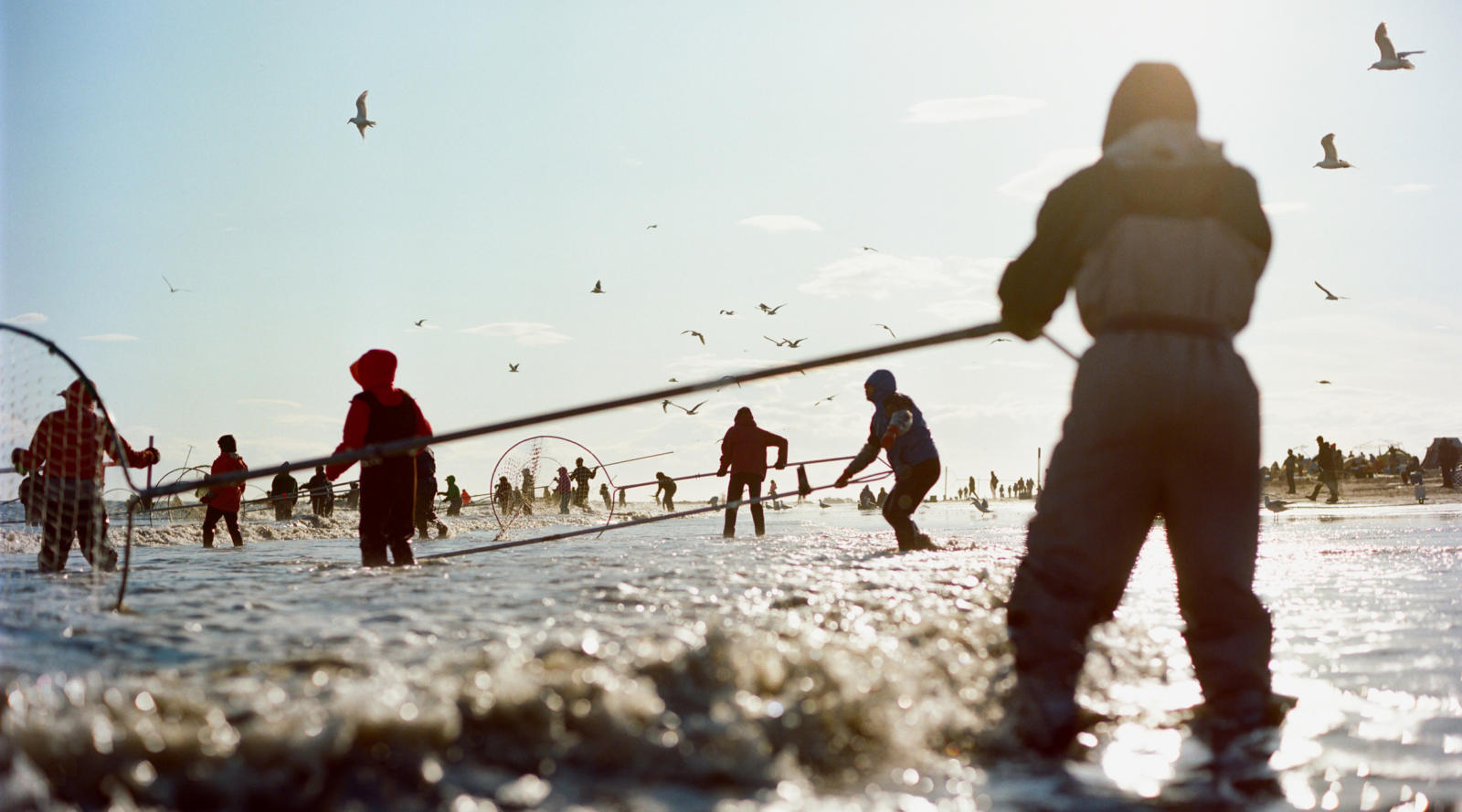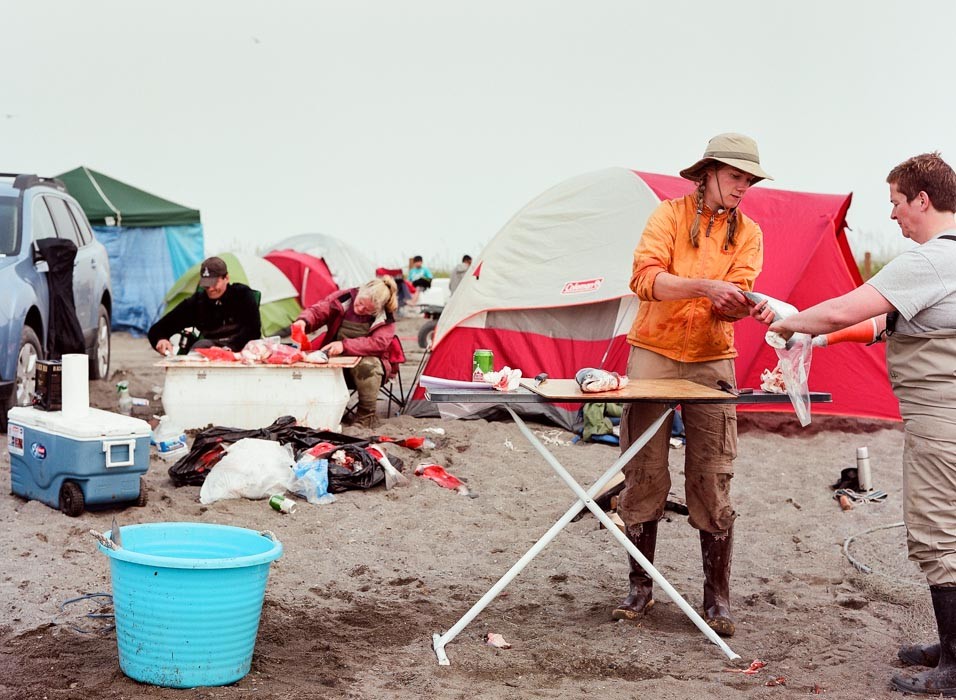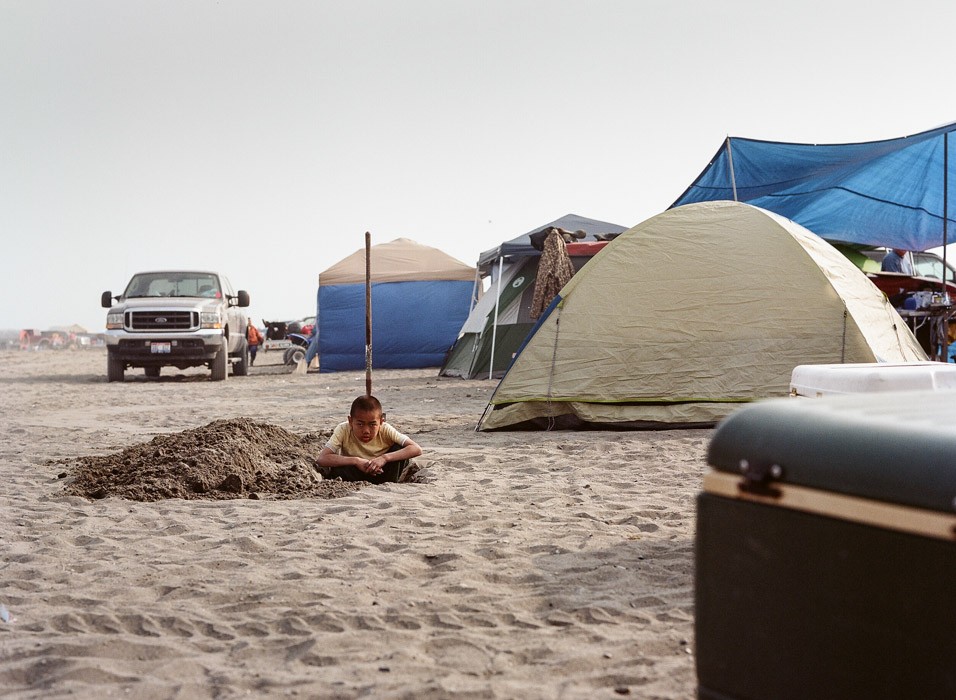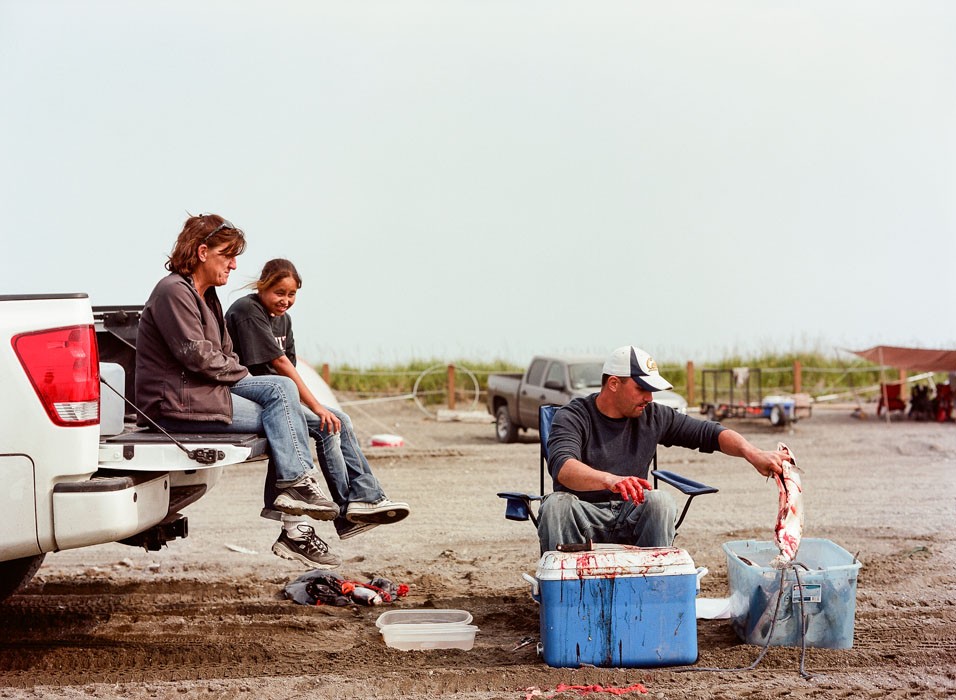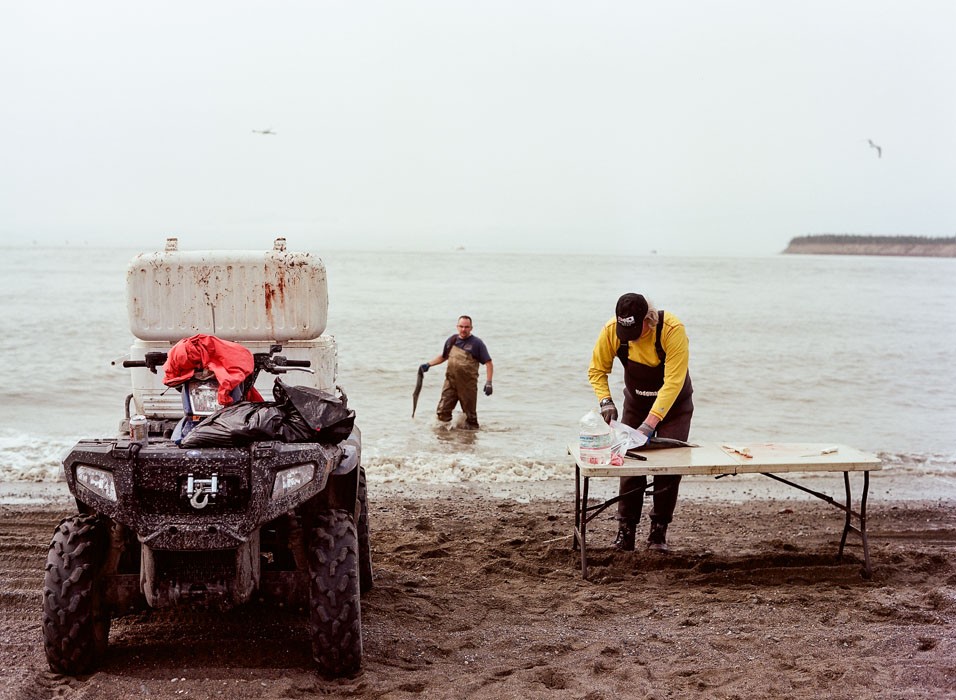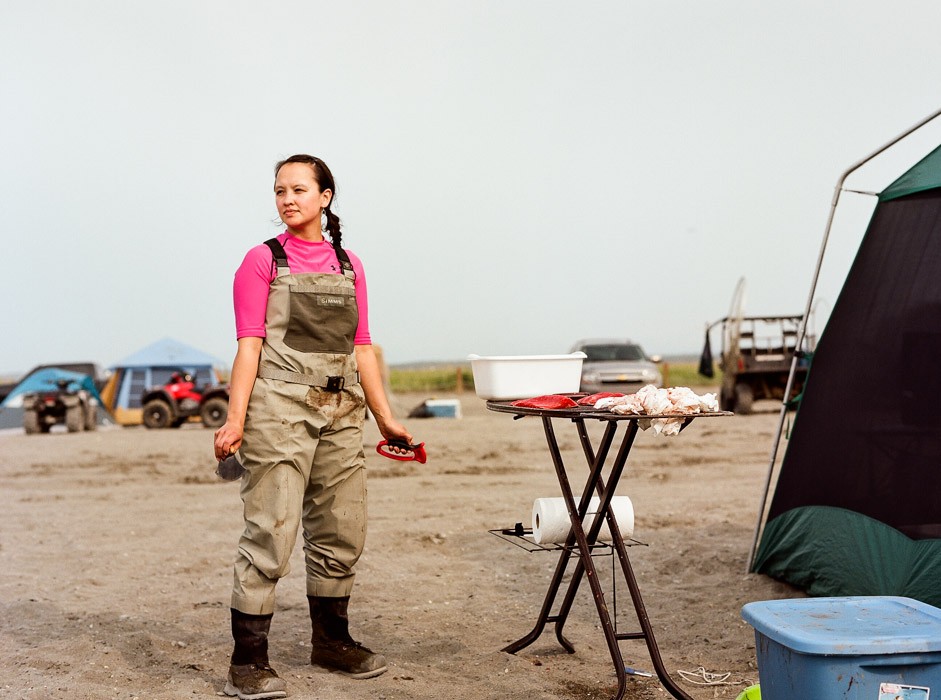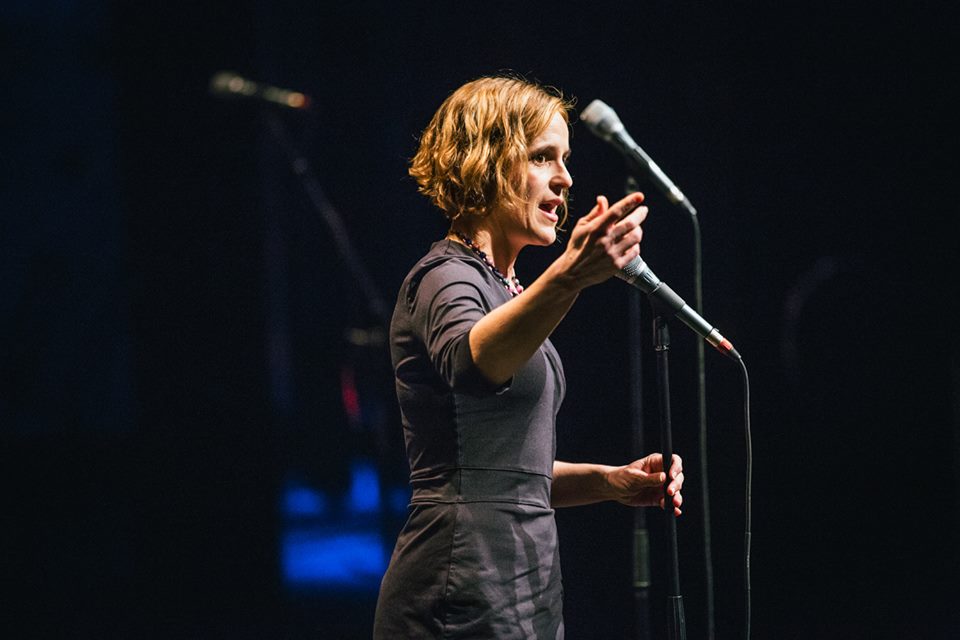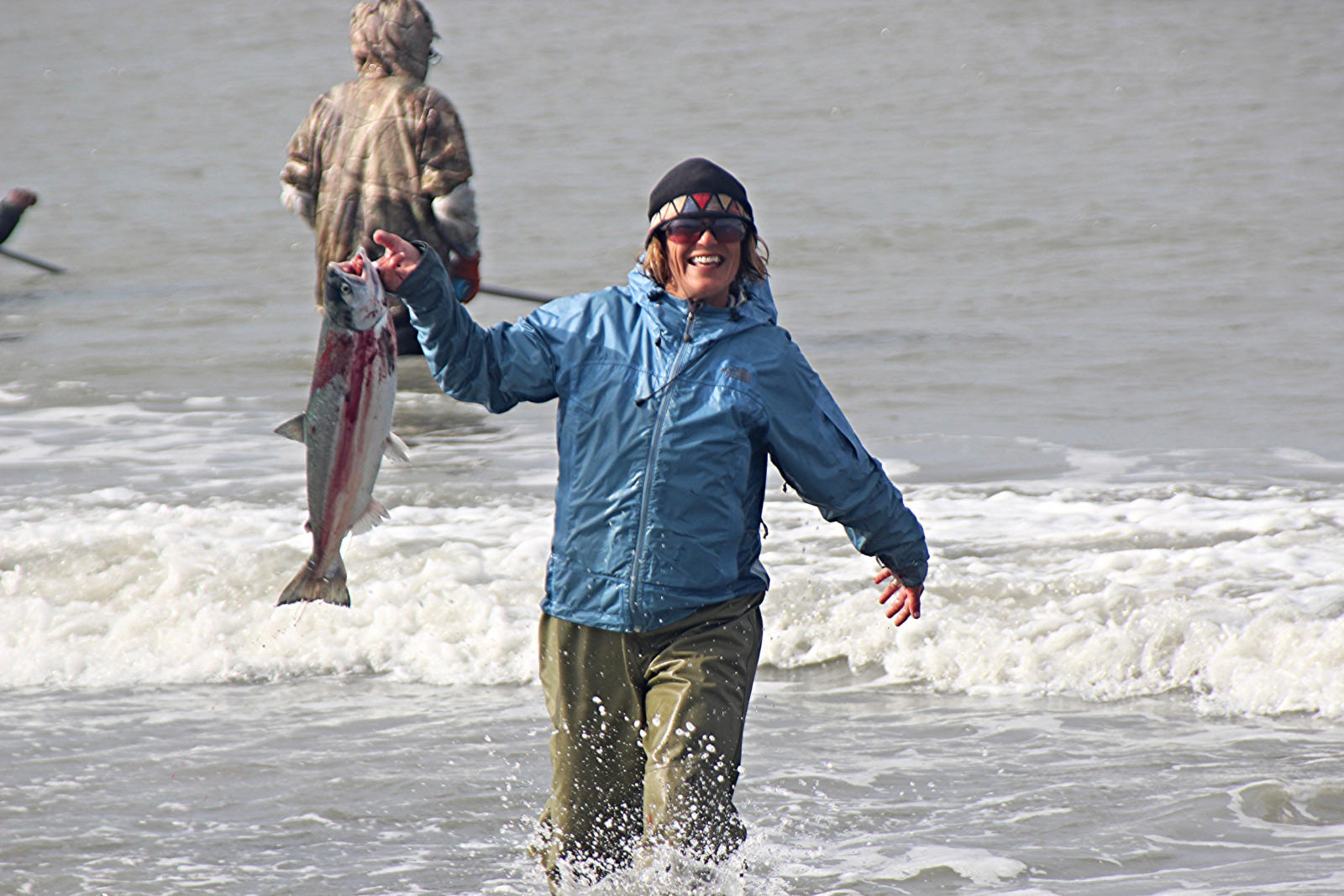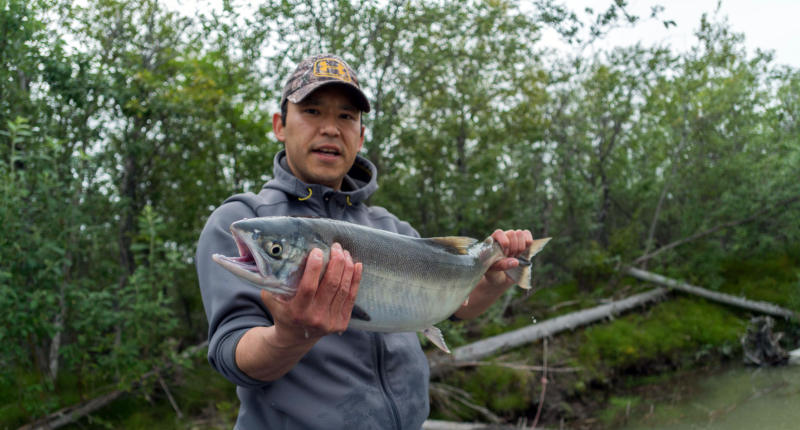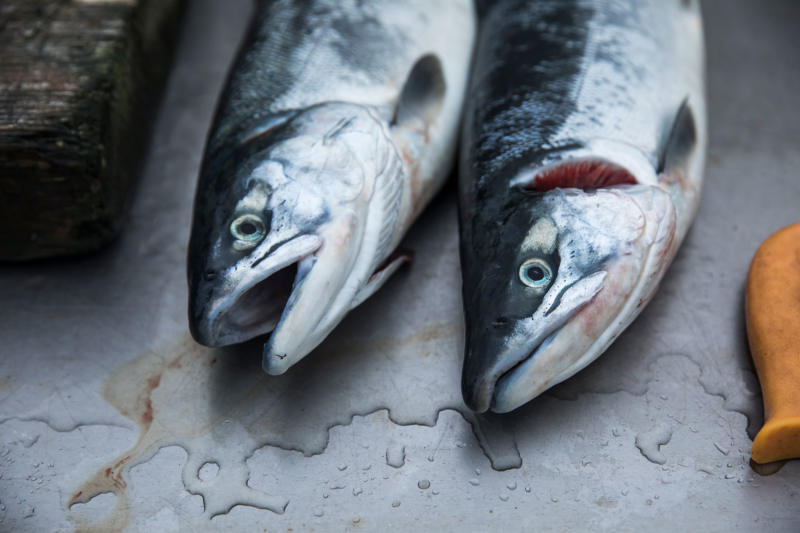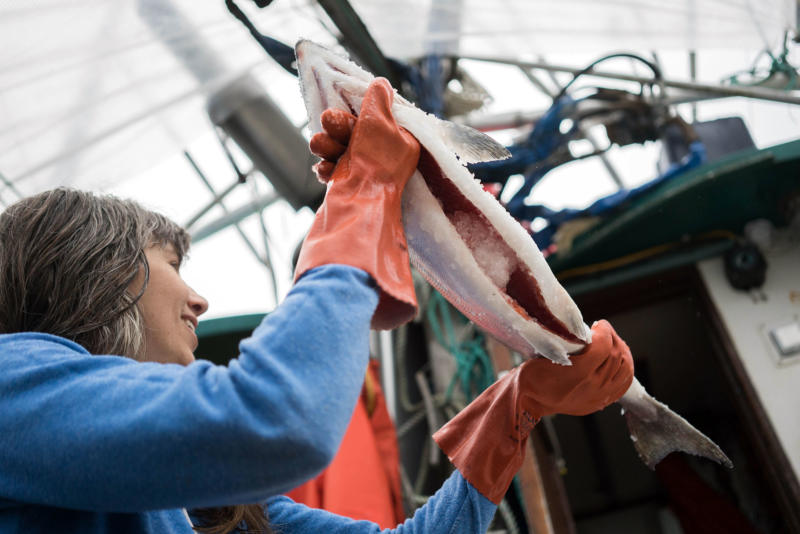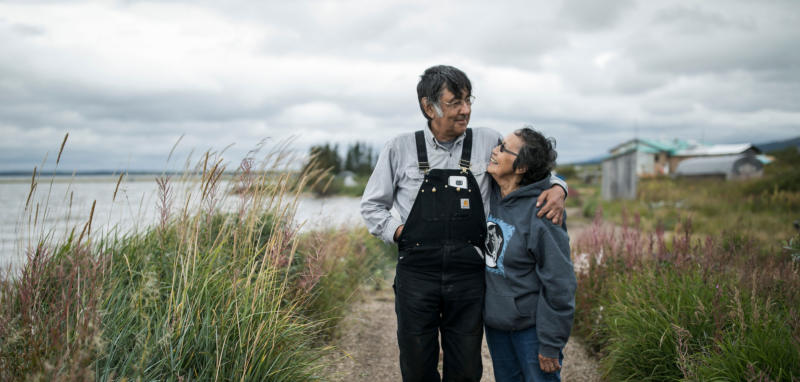And you better be ready to respond, to accept what the earth gives you. That is really your only choice: to accept or not accept.
You lick the salt from your lips, remnants of waves far bigger than you, too large to jump, too fast to move away from, and too strong to turn your back on, waves that catch you off guard and leave you feeling wild and raw. You stare at the light on the water, the volcanoes in the distance, Redoubt, Spurr, Illiamna, and St Augustine, as the sun rises higher above this crowded beach scene. You observe all the various people down the line, Alaska Native, Samoan, Hmong, old, and young, all waiting with a net similar to yours, but with the same intentions. You turn and watch the action on the beach where thousands of families camp, process fish, play in the sand, eat, drink…and wait.
Your children are back there somewhere, Elias and Olive, watched over by the tribe that joins families every second or third week of July for fish camp, eating meals communally and taking care of each other—the way it should be. You know Olive is playing with the other kids, building sandcastles or racing up and down the beach; her older brother, Elias, well, you just hope he’s not in meltdown mode. You choose to place your trust in your community of mostly transplanted Alaskans, and you let go as you strain to hold your net upright against the outgoing tide. He’s OK. He’s fine.
